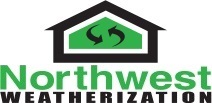Insulation is a critical component in any building’s construction, providing a barrier against heat loss or gain and thus ensuring energy efficiency and comfort within the structure. The choice of insulation material and the quality of installation can significantly affect the building’s overall thermal performance. There are several types of insulation available, each with its unique properties, applications, and installation methods. Understanding these options is crucial for homeowners, builders, and insulation contractors alike to ensure the selection of the most appropriate insulation for a given project. In this discussion, we will explore the various types of insulation available and delve into the importance of professional insulation installation by skilled contractors.
Types of Insulation
1. Fiberglass Insulation
Fiberglass is one of the most common types of insulation used in both residential and commercial buildings. Made from fine glass fibers, it is available in batts, rolls, or loose-fill forms. Fiberglass insulation is valued for its fire resistance, cost-effectiveness, and ease of installation. However, proper safety measures, such as wearing protective clothing, are necessary during installation to avoid irritation from the glass fibers.
2. Mineral Wool Insulation
Mineral wool can refer to either rock wool or slag wool insulation. Rock wool is made from natural basalt or diabase, while slag wool is produced from the slag from steel mills. Mineral wool is known for its excellent fire resistance and acoustic properties. It can be found in batts, rolls, or as loose-fill.
3. Cellulose Insulation
Cellulose insulation is made from recycled paper products, primarily newsprint, treated with fire retardants. It is an eco-friendly option that provides excellent thermal performance. Cellulose can be installed as loose-fill or blown-in, making it ideal for retrofitting older homes where it can be added to existing walls without much disturbance.
4. Foam Board or Rigid Foam Insulation
Foam board insulation provides high insulating value for relatively little thickness. Made from polystyrene, polyisocyanurate, or polyurethane, foam boards are commonly used on the exterior of walls, under roofing materials, and on foundation walls. They offer excellent resistance to heat flow and are also used to insulate almost any part of a home, from the roof down to the foundation.
5. Spray Foam Insulation
Spray foam insulation is applied wet and expands into a thick foam that can insulate and seal air leaks. It comes in two primary forms: open-cell and closed-cell. Open-cell foam is lighter and is an excellent barrier against sound, while closed-cell foam is denser, providing a higher R-value (a measure of thermal resistance) per inch, making it an effective insulator against both heat flow and moisture.
Importance of Professional Insulation Installation
The performance of insulation is highly dependent on its correct installation. Inadequate or incorrect installation can lead to gaps, compression, or moisture problems, significantly reducing the insulation’s effectiveness. This is where professional insulation contractors play a crucial role.
Choosing the Right Insulation Contractors
Selecting experienced and reliable insulation contractors is essential for several reasons:
- Expertise: Professional contractors have the knowledge to recommend the best type of insulation for a specific project based on the local climate, building design, and budget.
- Quality Installation: Professionals ensure that the insulation is installed correctly, without gaps or compression, maximizing its effectiveness.
- Safety: Installing certain types of insulation, such as fiberglass or spray foam, requires handling potentially hazardous materials. Professionals have the necessary equipment and training to handle these materials safely.
- Efficiency: Experienced contractors can complete the insulation installation efficiently, minimizing disruptions to the building occupants.
- Warranty and Compliance: Professional insulation installation often comes with a warranty. Contractors are also familiar with local building codes and regulations, ensuring the insulation meets all legal requirements.
Conclusion
The selection of insulation type and the quality of its installation are pivotal in achieving energy efficiency, comfort, and sustainability in buildings. From traditional options like fiberglass and mineral wool to eco-friendly choices like cellulose and high-performance solutions like foam boards and spray foam, the range of insulation materials caters to diverse needs and preferences. However, the benefits of these materials can only be fully realized through professional installation by skilled insulation contractors. These professionals not only ensure that the insulation is installed correctly and safely but also that it complies with local building codes and standards. Ultimately, investing in quality insulation and professional installation services is a wise decision that pays off in the long run through reduced energy bills and enhanced comfort.
- Attic Insulation Portland OR
- Attic Insulation Tualatin OR
- Attic Insulation West Linn OR
- Crawl Space Cleaning Beaverton OR
- Crawl Space Cleaning Tualatin OR
- Insulation Installation Beaverton OR
- Insulation Installation Gresham OR
- Insulation Installation Hillsboro OR
- Insulation Installation Lake Oswego OR
- Insulation Installation Milwaukie OR
- Insulation Installation Newberg OR
- Insulation Installation Oregon City OR
- Insulation Installation Portland OR
- Insulation Installation Salem OR
- Insulation Installation Sherwood OR
- Insulation Installation Tualatin OR
- Insulation Installation West Linn OR
- Insulation Installation Wilsonville OR
- Mold Remediation Lake Oswego OR
- Mold Remediation Oregon City OR
- Mold Remediation Portland OR
- Mold Remediation Tualatin OR
- Mold Remediation West Linn OR
- Vapor Barrier Installation Beaverton OR
- Vapor Barrier Installation Hillsboro OR
- Vapor Barrier Installation Lake Oswego OR
- Vapor Barrier Installation Portland OR
